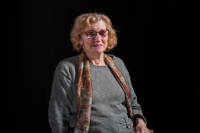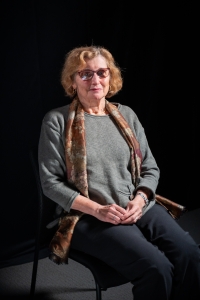In the U.S., she experienced the fall of the Twin Towers and the financial crisis
Viera Kalinová was born in 1949 in Bratislava into a Jewish family. Her grandparents and most of her family perished during World War II or in concentration camps. Her mother, Margita, survived the Plaszow labour camp, the Auschwitz concentration camp and the death march to Bergen-Belsen. She was liberated by the English. After the war, she came to visit her uncle in Bratislava and met her father, László Klein, who had been hiding in Bratislava for nine months. When she was seventeen, they emigrated to Israel, from there to Germany and in 1965 to the USA. Viera studied Russian literature at Brown University in Rhode Island. From 1971 to 1978, she studied Slavic Studies at Yale University. She met there with the conductor and musician Gilbert Lavin. She married in 1976 and had two children. She worked for four years at a Boston bank. She worked at the Bank of Tokyo - Mitsubishi in New York for thirty years. She lived through the attack on the World Trade Center on November 11, 2001, and the financial crisis of 2008. Today, she is retired and enjoys taking classes, swimming and spending time with her family.

